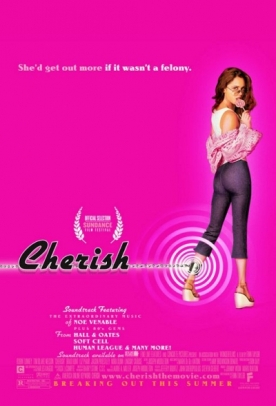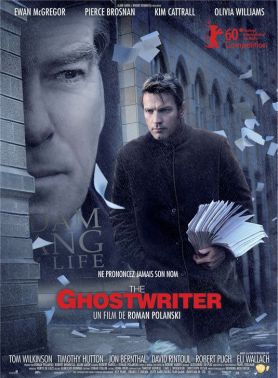P.S. I Love You
Traditional romances approach love by focusing on the other: that is, the uniqueness, the perfection, the irreplaceableness of the Loved One. You are my one and only. Without you I shall die. There is no one else for me but you. Fate has destined us for each other from all eternity. You get the idea. But Hollywood doesn’t make traditional romances anymore. They have been replaced by what we might call the therapeutic romance. Here the focus shifts from the other to the self. The mantra for these pictures is: Yeah, you were pretty special, but now it’s time to move on with my life. It will be hard, but I’ll get over you and find another lover who can meet my needs. Such a movie is Richard LaGravenese’s P.S., I Love You, which really ought to have been titled: “P.S., I Love Me.”
Two-time Oscar winner Hilary Swank plays Holly Kennedy, a young New Yorker whose hunky, fun-loving Irish husband, Gerry (Gerard Butler), gets a brain tumor and dies in the first reel. The death is antiseptic and takes place off camera. There is no visible suffering except that of the widow. Before he died, the lovably roguish Gerry turns out to have arranged for letters and other surprises from himself to be delivered to Holly throughout the first year of her widowhood, all with a view to jollying her out of her inevitable grief and instructing her in how to get over him — and to hook up with a suitable replacement. With dead Gerry’s help, she even finds her true calling as a shoe-designer.
Talk about a chick-flick that presses all the right buttons! For me, however, this detail sums up what’s wrong with the picture. Love is like pretty shoes — though they don’t look all that pretty to me — in being just a means to the end of the heroine’s happiness and sense of self-fulfilment. Such a story doesn’t have anything like the same imaginative power as the old-fashioned kind of romance in which both love and death were events of cosmic significance in themselves and not merely opportunities to make a more satisfying life for oneself. What, you might ask, is this movie really about? It’s about people having feelings. First they are hard and unpleasant feelings. Gradually they become better feelings. The end. Do you sense a certain lack of intellectual, artistic or spiritual sustenance in such material?
The performances also leave something to be desired. Hilary Swank, to me, sums up what’s wrong with the Academy Awards. A terrible actress, she has nevertheless won Best Actress not once but twice — both times for playing tragic victims who die as a result of or in spite of moralizing bigots. In other words, what the Academy is awarding its prize for is not acting but a sort of waif-like vulnerability that Miss Swank projects without even trying. This gets her half-way home; the other half of the way comes when she puts this congenital talent — if that is what it is — in the service of Hollywood’s own ideology of moral, and especially sexual, libertinism. At least she is unlikely to take home another statuette from this picture. In it, she is neither a trans-sexual heroine (as in Boys Don’t Cry) nor a feminist and libertarian one (as in Million Dollar Baby), so the moralizing is less strident — and the Oscar potential correspondingly reduced.
Nor is the rest of the cast very much better. In spite of an extended flashback, Mr Butler is unable to make much of an impression except as an idealized hunk — rather, in fact, as he was in 300 — and neither Gina Gershon nor Lisa Kudrow as Holly’s fun-loving but supportive gal-pals is much help either. Kathy Bates as Holly’s hard-done-by, tough-but-tender single mom has her moments, but Harry Connick Jr. as Gerry’s prospective replacement is so awful that even Mr LaGravenese is forced to withdraw him and find someone else. What, then, is he still doing in the picture? He doesn’t even sing!
One of the problems with the therapeutic romance is that, like the dead or discarded lovers it concerns itself with finding replacements for, it lacks any sense of compelling individuality. As it troubles itself only to make the point that one romance is as good as another, it is hardly surprising if it ends up persuading us that it is itself similarly replaceable. Moreover, its moral foundation is based on what the social commentator Theodore Dalrymple calls “the hydraulic model of human desire, according to which passion is like the pus in an abscess, which, if not drained, causes blood poisoning, delirium, and death.”
This model goes naturally with the therapeutic romance. Thus, when her girlfriends finally manage to push the widow Holly into bed with a new man, one of them comments: “The longer you go without sex, the meaner and bitchier you get.” Twice Dickens’s Miss Havisham from Great Expectations is referred to as a possible but rejected model for Holly’s grief-stricken life after Gerry — but only as a sort of sick joke. It is also telling that both times this lady’s name is mispronounced as “Haversham.” Maybe, that is, they’ve heard of her, but they have no real acquaintance with her. The idea that Holly — or anyone else — might feel herself so twinned by fate with her dead lover as to remain true to him even after death is quite literally inconceivable.
Discover more from James Bowman
Subscribe to get the latest posts to your email.








